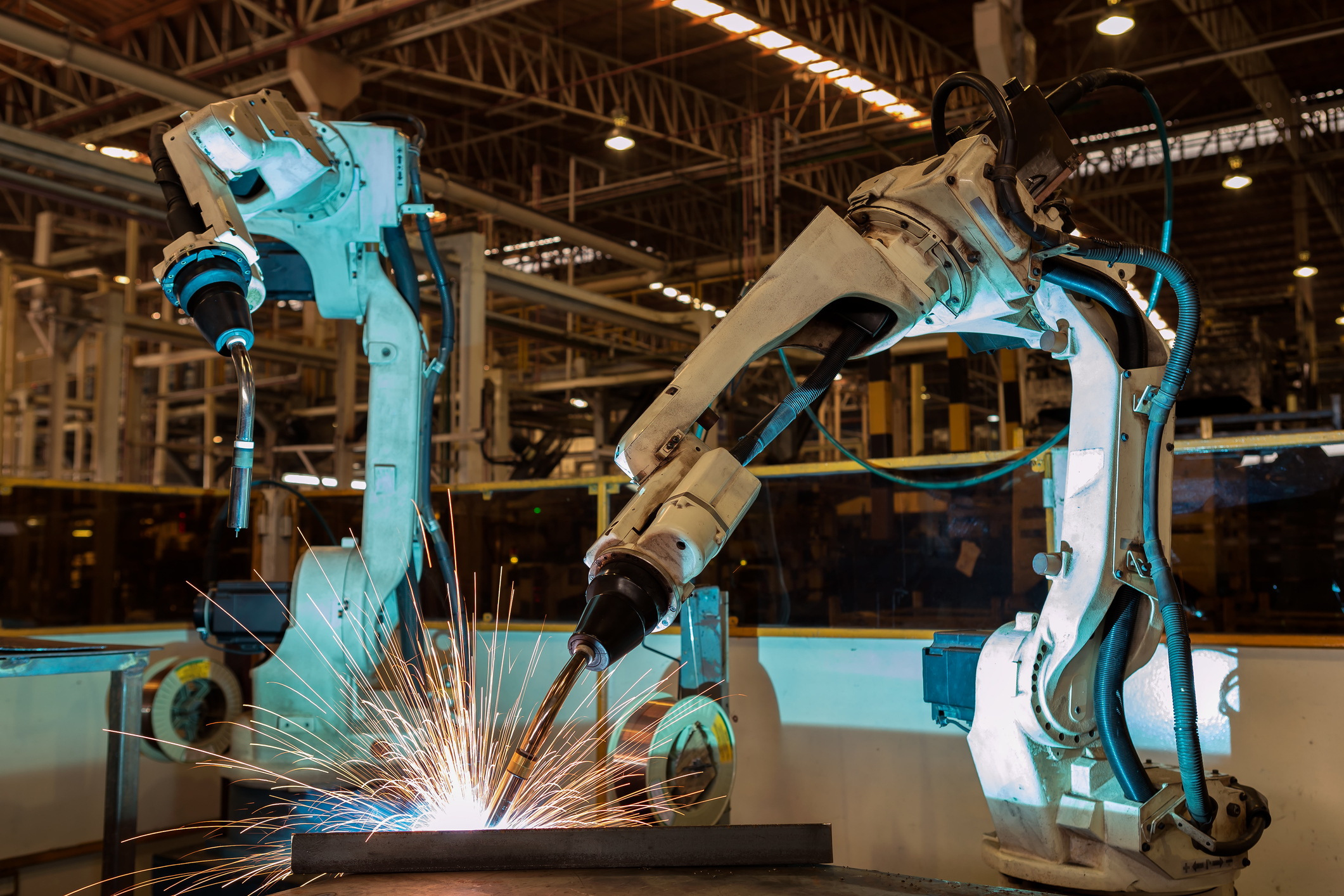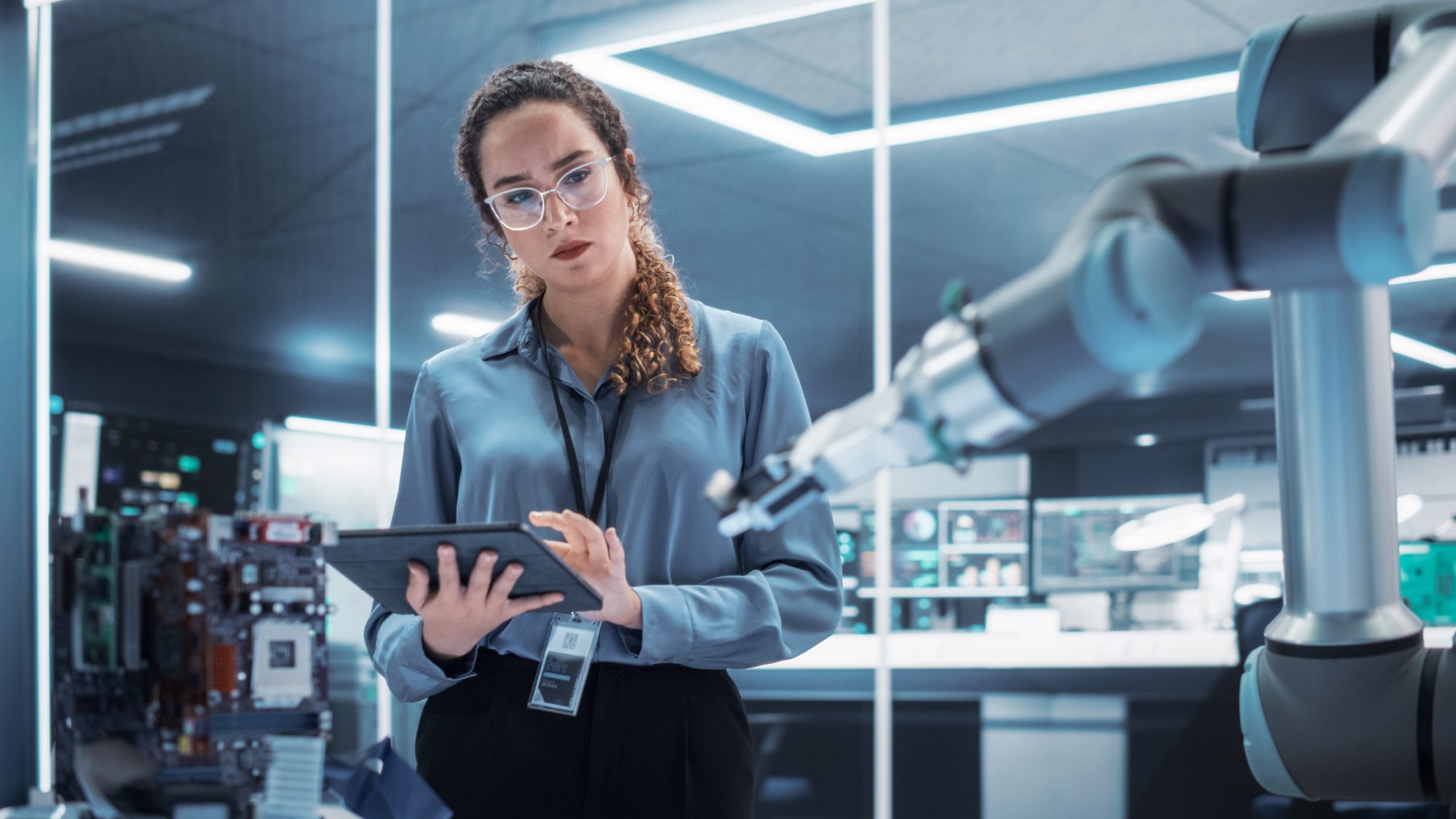Tackling Dangerous, Dark, Dirty Jobs with Pittsburgh Robotics

When it comes to innovating ways to tackle jobs that are dirty, difficult, dark or downright dangerous, the Pittsburgh region is a force to be reckoned with. Why? It starts with our history as a trailblazer in robotics.
When the Three Mile Island incident occurred in 1979, Carnegie Mellon professor William “Red” Whittaker sprang into action: he and his CMU students designed and built robots to perform the dirty, dangerous work of cleaning up the meltdown. This project put Pittsburgh on the map as a hotbed of autonomous mobile systems innovation.
Today, robots aren’t just found in science fiction. From healthcare to space exploration, the Pittsburgh region is creating robots that can do the type of work that human workers don’t have the dexterity to do or should avoid due to risk. Cutting-edge algorithms drive these advancements by enhancing robots’ decision-making capabilities and performance. There’s never been a better time to develop robotics technology in Pittsburgh.
The Build Back Better Regional Challenge is currently fueling a $62.7 million grant in southwestern Pennsylvania to ensure the impact and benefits of autonomous systems reach more people, businesses and communities in our region. That includes initiatives to accelerate the adoption of automation solutions for advanced manufacturing, one of Pittsburgh’s strongest sectors. The five signature projects funded by the Build Back Better grant are helping companies and talent across the region connect with robotics in dynamic ways that ultimately increase efficiency and productivity.
Some of these efforts focus on the highest-risk aspects of manufacturing and other industries. By giving such jobs to industrial robots, we empower human beings to do more satisfying, innovative work.

What Can Robots Do That Humans Cannot Do?
An Aquatic Example
Pittsburgh-based Aquatonomy is a prime example of what it looks like when robots take over dangerous jobs. This leads to increased opportunities for human intelligence to solve complex challenges. The company is part of the inaugural cohort of the Robotics Factory in Pittsburgh – the region’s first and only robotics-focused accelerator – made possible with Build Back Better funding and led by Innovation Works and the Pittsburgh Robotics Network. Aquatonomy’s specialty comes in supporting infrastructure safety and renewable energy efforts by automating hydropower dam inspections.
Their technology aims to efficiently conduct underwater inspections while eliminating risk to divers – especially in dark, dangerous water conditions with poor visibility . With its cutting-edge autonomous underwater vehicles collecting data in complex, submerged environments, Aquatonomy can generate high-resolution 3D models to help locate and expedite repairs to critical infrastructure. See their aquatic robots in action.

The Positive Impact of Pittsburgh Robotics
on Employment, Economic Growth
Aquatonomy is not alone. Disruptive autonomous solutions are coming from companies across the Pittsburgh region. Born in Pittsburgh, Gecko Robotics is generating significant buzz around its artificial intelligence-powered robots that maintain and build physical infrastructure. The company recently raised $100 million in Series C funding to fuel its growth in the defense sector – meeting increased demand from the U.S. military and its allies.
Another example is Mach 9 Robotics. A product of the Robotics Institute at Carnegie Mellon, the startup is on a mission to grow its automated platform which can create maps from lidar and/or image data 30 times faster than previous standards.
Based in Pittsburgh’s Lawrenceville neighborhood, Thoro.ai is making a name for itself with its world-class technology, which enables indoor mobile robots to perform manual, repetitive tasks. The company’s innovations guide autonomous cleaners that scour hospitals, schools and airports, along with pallet mover robots that move nimbly across warehouses.
These Pittsburgh region companies are joined by many other dynamic innovators like Carnegie Robotics, Identified Technologies and Advanced Construction Robotics. They’re creating autonomous solutions for critical, often hazardous jobs a human can do but should avoid for their safety.
They are also pioneering new frontiers of manufacturing, construction and logistics tasks with the adoption of industrial robots. While it’s a common concern that robots and automation are replacing humans, there are positive impacts of robotics on employment and job creation.
In fact, the incredible growth of Pittsburgh’s robotics ecosystem is proof that automation can create better jobs: each company that expands or starts up here needs a team of programmers, engineers, machine learning experts and more to make their ambitions come to life. The algorithm can tell robots to do specific tasks, but the human element is what truly adds creativity with the things robots can do.
Thankfully, the Pittsburgh region has the ideal talent pool, combining a problem-solving, can-do mindset and computer science knowledge to advance robotics technologies that deal with a spectrum of dirty, dark or dangerous tasks. And there’s room for more companies to join – ready to start innovating?
Contact Us
Connect with the Pittsburgh Regional Alliance to learn more about our robotics ecosystem and the region’s role in advancing autonomous solutions.